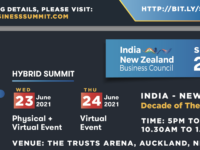Our ‘New Normal’: Here to stay or gone already?
How long does it take for the recent past to seem like distant past? I pondered, sitting in the thick flow of motorway traffic while commuting back home, in the first week since entering level 1. The 8-plus weeks spent working from home already seems like a memory blip from a distant past.
During the scary pandemic days, when the world hunkered within the confines of their homes, traffic stalled and all economic activities except essential services came to a grinding halt, we read a lot about the paradigm shift that would surely come forcing us to reevaluate the lives we are leading and recalibrate for work practices going forward. Amid the crisis, with its macabre statistics of ill and the dying, there were also amazing news items of wildlife reclaiming their spaces, pollution levels plummeting, sharp dips in crime, overnight removal of rough sleeping and homelessness. It seemed for a brief period that humanity had learnt its lessons of comeuppance and in the new dawn all our excesses would be re-examined and there would be increasing pressure to address the burning issues of excess consumption, the growing disparity between the haves and the have-nots, and most of all on the pressing matter of climate change.
Many of our thought leaders, scientists and economists have raised voices of concern at the excesses of our lifestyles and how it was trashing the planet. There are any number of erudite scholarly writings backed with scientific research and evidence-based findings that our current consumption pattern require several earths when we have only one. Our generation had Schumacher’s ‘Small is beautiful’ with its model of people centred, decentralised economic growth. The current generation has Kate Raworth’s (of the Doughnut Economics fame) sane voice. But it appears that all these voices are getting drowned in the noise of the clattering wheels of corporate juggernaut.
Last year, when Raworth addressed the packed hall at the Auckland Writers’ festival, the electric energy at the venue seemed to suggest that the world was at the cusp of a great revolution. But she was probably preaching to the already converted and there were no elected politicians and policy makers who could reshape the economy ‘to meet the needs of all within the means of the planet’.
There is, of course, an urgent need to stem the economic haemorrhage and combat job losses all around. For now, the people at the helm of affairs are shovelling money in the furnace of economy to overcome recessionary trends and put a brake on the increasing number of redundancies. Even in the bastions of free market economies around the globe, it appears to be a case of ‘Goodbye Friedman. Hello Keynes!’ Well, printing money is way easier than radically revamping the economic structures!
It was not long back when the corporate world was lauding the sustained productivity benefits (nay, even higher productivity) of employees working from home. But now that movements restrictions are gone, there is increasing pressure to return to the regular inflexible 9 to 5 work schedules. Can ‘trust’ erode so quickly? Can we not move to a new workplace model which combines the productivity benefits and work-life balance provided by WFH with the social interaction and networking benefits of working from an office? At least technology is not found wanting in this space as we learnt during the lockdown weeks that remote working is really not so remote. Applications like WebEx, Zoom, Hangout etc., were used extensively at work-places to connect and collaborate.
But sitting in the crawling traffic flow, it seems like ‘business as usual’. All the optimism and the promise of a new era seems already to be fading fast. Are we going to let the golden opportunity to rebuild the fundamentals of our economic matrices pass us by? Will we not pause for a bit and rethink the directions?













